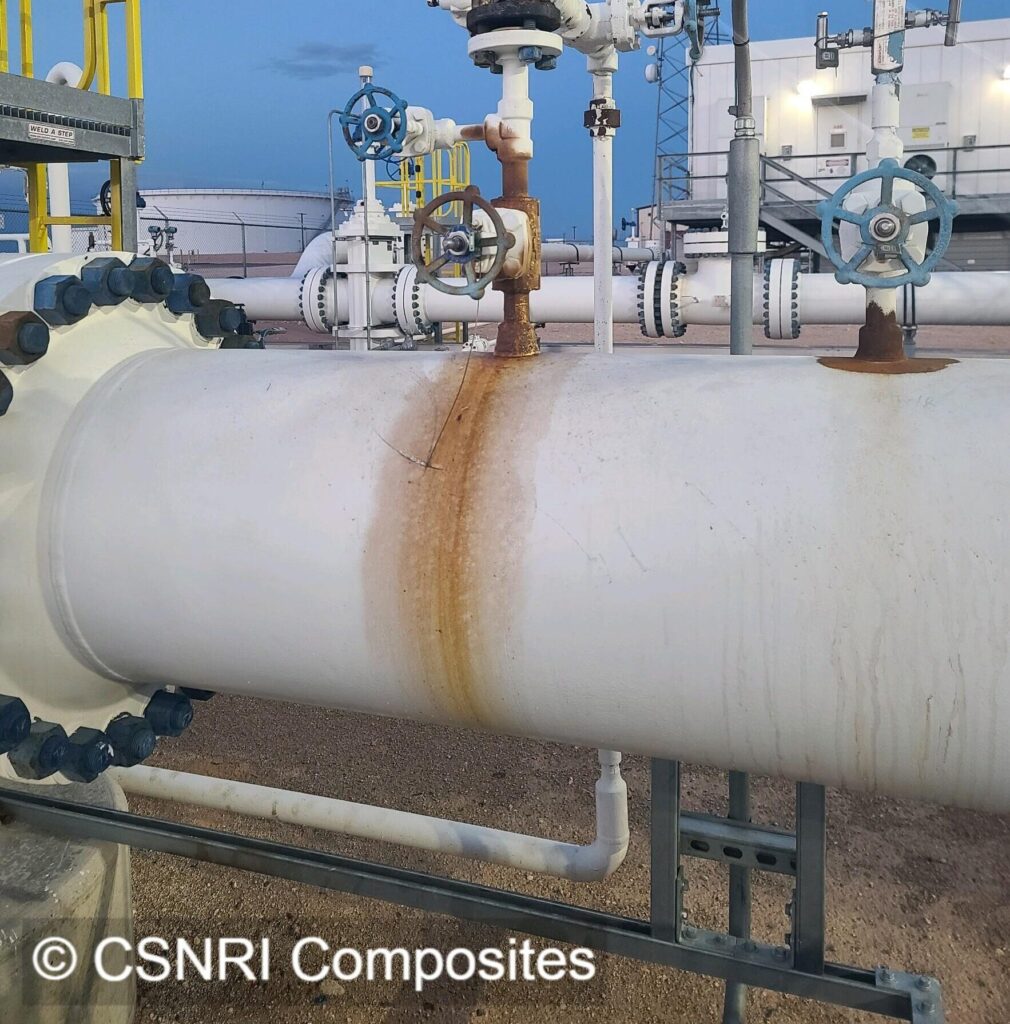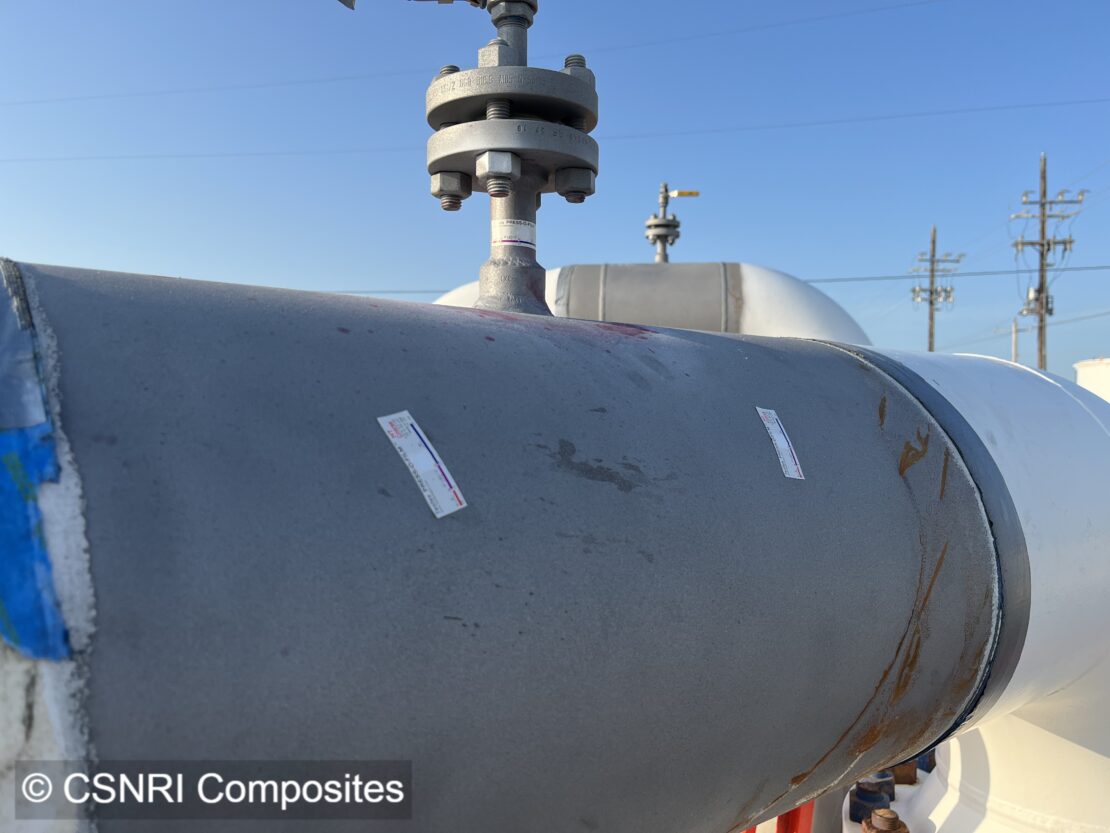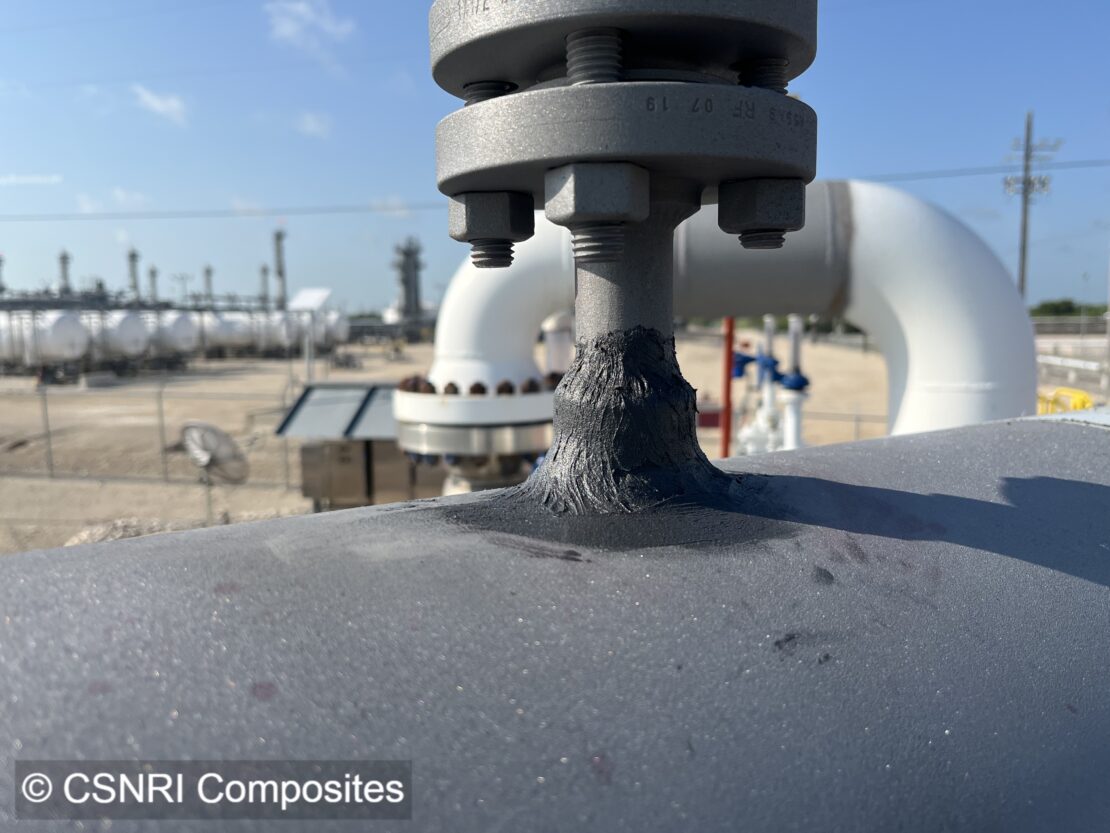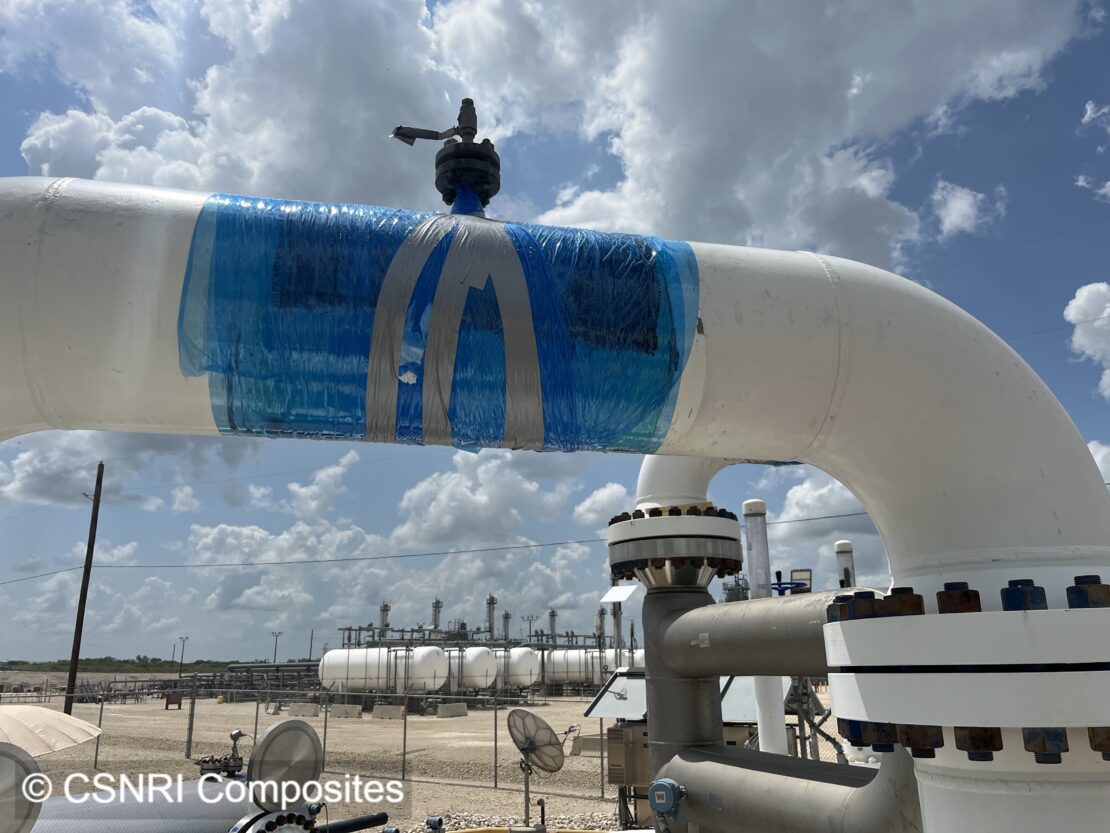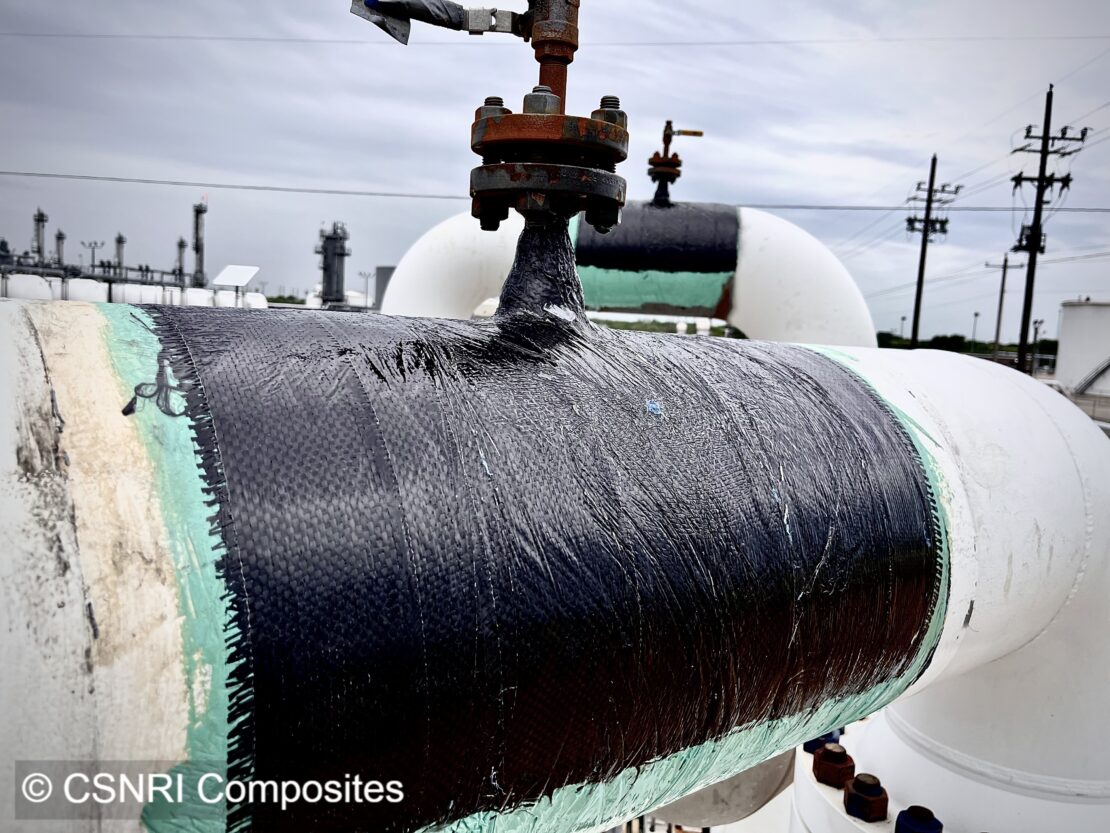Texas
Summary
An international oil and gas operator discovered a leak at original construction welds on a 20-inch crude-oil carbon steel pipeline at a stabilizer station in Texas. The weld defect was located at a connecting branch weld-o-let. Based on a history of successful repair solutions, CSNRI was called in to assess and design a repair for leak mitigation. Among the requirements was a solution that did not entail hot work or involve extensive cure time. With crude transport levels at a million barrels a day, having the line down for the shortest time possible was a priority for the asset owner. CSNRI engineered a repair that could address the leak quickly with Atlas carbon-fiber composite solution.
Benefits
- Ideal for repair of corrosion, dents, gouges, wrinkle bends and cracks
- Engineered for permanent repair and rehabilitation with minimal disruption to pipeline operation
- Flexible repair system for complex deformities and geometries (straight, elbow, tee, welds and irregularities), including those in areas of low clearance
- Reliable leak containment capabilities
- No hot work (eliminates risk of auto-ignition)
- The most-tested carbon fiber composite solution for the permanent repair and rehabilitation of pipelines and piping structures.
- Installed and inspected with cost-effective field labor
- Can be installed over non-injurious hard spots and laminations without safety risk, reducing the total repair length, cost and time required compared to steel sleeves
- Fast curing
Challenge
The complex “tee” geometry of the weld-o-let made the repair challenging. With a girth weld crack documented, a quick repair was important to restore operation, reinforce the line, and minimize future stress concentrations.
Solution
Atlas is highly engineered carbon fiber composite solution designed to permanently restore the original strength and function of damaged pipelines. CSNRI designed a solution that would meet or exceed the ASME PCC-2 OR ISO 24817 requirements. The varying product dimensions available and flexible, bi-directional fabric weave of the Atlas carbon fiber material, combined with the high modulus and leak containment capabilities of the system, made it an ideal solution for the infinite circumferential slot leak type B repair.
Application
The line was depressurized, and operations moved to an alternate pump to accommodate the installation of the repair and curing time. The repair zone included a 10-inch linear repair on the base pipe and a 4-inch linear repair on the branch pipe. EPN-242 was used as the primary load transfer filler to help shape and transition the nozzle, with PPR-290 adhesive primer applied to provide adhesion to the substrate. The primer forms a protective barrier, helping to prevent corrosion on damaged sections of the pipeline. PPR-290 provides strong resistance to chemicals, oils, and other corrosive agents found in crude oil pipelines, helping to ensure long-term durability and protection of the repair area.
Within 20 hours, CSNRI was on site to provide support during execution of the repair. Over the course of three hours, a four-person crew used the custom installation methods written by CSNRI engineering to apply the 12-layer repair. As a final step, compression film was applied over the repair during the curing process.
Results
The repair was completed quickly and the pipeline was restored to full operation. The initial call for assistance was received at 3:30 pm. Atlas product and support arrived at the repair location the next morning by 9:00 am. The repair was swiftly executed and the assets were turned back over to the owner in a 24-hour period, which included cure time.
Based on the success of this repair, several similar repairs have been made for the same customer, which they estimate to have saved $2 million in down time.
